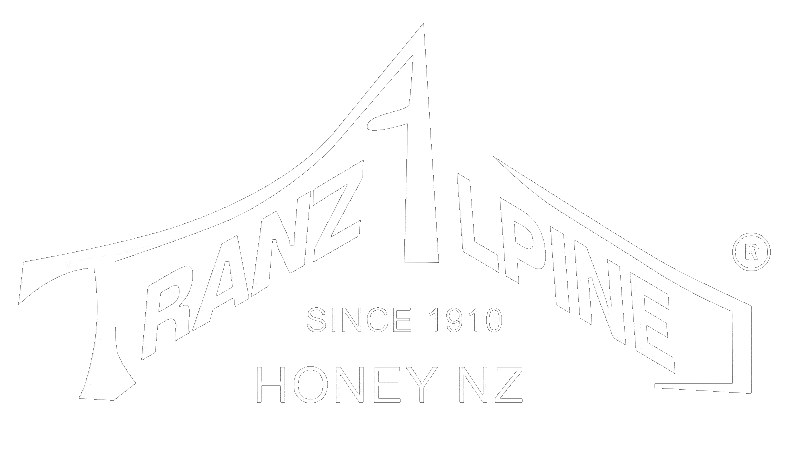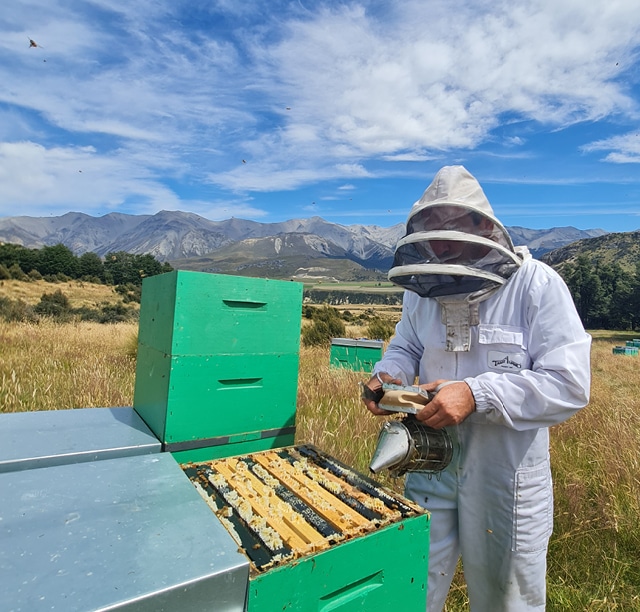
The Adventure of the Organic Honey Harvest
Being certified organic is not only a lifelong commitment, it is also a huge adventure. To be certified organic in New Zealand, you have to meet some of the most stringent requirements in the world, one of them being that your hives must be a minimum of 5km away from any and all farming operations and urban settlements.
In the rural South Island, there are lots of beautiful, wild and completely untouched regions which are perfect and protected for our hives. But we can’t just pop down to the bottom of our gardens to check on our bees.
Our hives are in such remote regions, that our beekeepers not only need some excellent 4×4 navigation skills, but they also need to be trained in bushcraft, survival and navigation as we have found ourselves isolated or stuck overnight by rivers that rose during the day or sudden changes in weather that leave us having unplanned sleepovers in our vehicles.
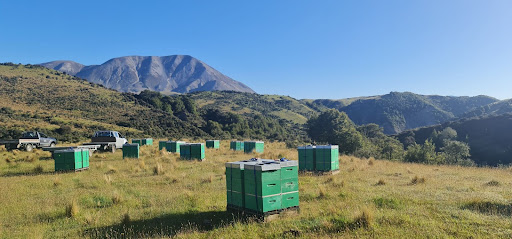
Organic Mānuka Honey
A day in the office for us has its perks, with beautiful blue crisp South Island skies, rolling alpine views and nothing but the wind, the hum of the bees and the birds to keep us company.
Summer in New Zealand is the busiest time for beekeepers, with the warm weather conditions and short flowering window of Mānuka flowers.
To capture the nectar flow the beehives must be placed in the wild remote Mānuka areas at just the right time, and conditions have to be just right – strong winds will blow the flowers from the plants, while the rain keeps the bees from venturing out of their hives.
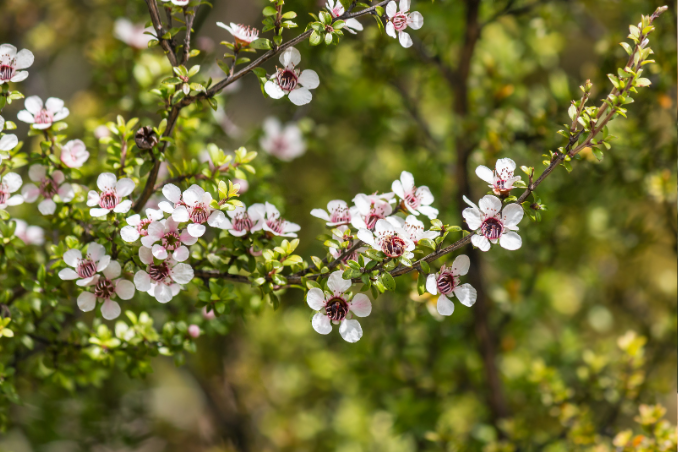
The weather has a significant impact on the quality of the Mānuka honey produced in any given year, like wine. Every year is different and as we can’t control the conditions, we never know what we are going to get.
The production of Mānuka honey is a lot more challenging than common honey, like Clover, which grows all year round.
A single bee colony can pollinate 300 million flowers each day. 70 out of the top 100 human food crops.
Harvesting Organic Honey
TranzAlpine Honey only uses renewable, carbon-neutral and sustainable wooden honey frames and beehives. They keep bees warm in the winter and promote longevity.
During harvest, the frames are carefully removed and collected from the hives. We transport them back to our production facility. The frames are placed in warm storage at the natural temperature of the beehives for 12 hours before extraction.
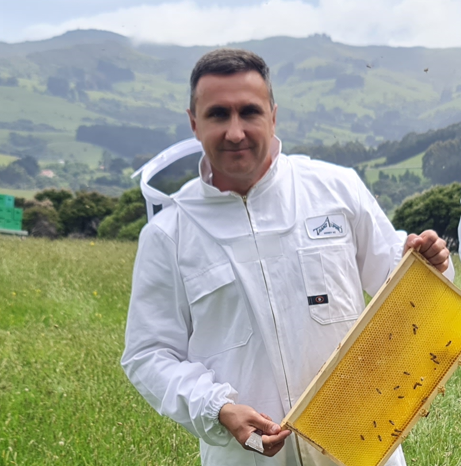
The Organic Honey Process
Organic honey extraction doesn’t involve the use of heat or chemicals. Unlike conventional operations that heat honey above 30C/86F.
This organic process helps to preserve all the unique antioxidant properties and natural enzymes in the honey, which normally breaks down under excessive heat.
We extract the honey by spinning it off of the frames. The extracted honey then goes into a creaming tank where it is spun for 12 hours. This process called creaming gives honey a softer, buttery texture while preserving all benefits.
The creamed honey is then transferred into food-grade drums before being packed into 100% Recycled PET, BPA-free jars or glass jars depending on customer requirements and shipped.
From our family to yours, the traditional way, just as nature intended.
Read More
What grade of Manuka honey is best?
Protect and Defend your Health with Organic Honey
Give Your Body a Boost with Organic White Clover Honey Infused with Ginger
Posted in Organic
Share:
